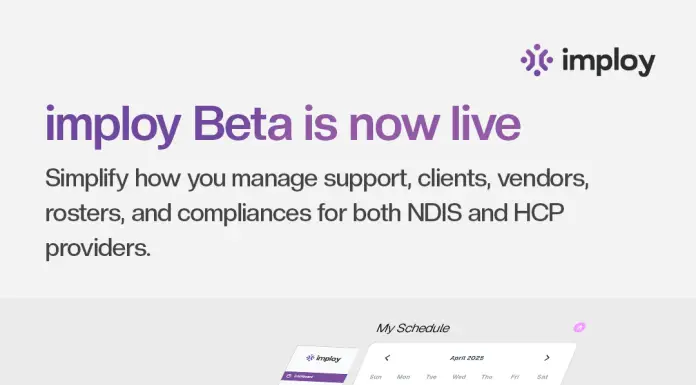An innovative workforce study aimed at addressing key challenges in the care sector has reached a significant milestone with the completion of the first phase of the Empowering the Care Workforce pilot.
Conducted by researchers from the Australian Catholic University (ACU) in partnership with the National Care Workforce Alliance (NaCWA), the Queensland-based pilot was funded by Jobs Queensland through a Queensland Care Consortium grant awarded to NaCWA in September 2023.
The project has been focused on implementing processes and systems designed to enhance attraction to the care sector, improve worker mobility, and reduce underemployment. Additionally, the study aims to streamline onboarding training and reduce duplication between organisations.
In a statement, Professor Laurie Buys from ACU stressed the crucial role of Jobs Queensland’s funding in supporting NaCWA’s mission to drive sustainable improvements in the care workforce.
“The Queensland pilot project has provided valuable insights into how we can attract and select the right people for the care sector while ensuring they are well-prepared for the workforce,” Professor Buys said.
Using a co-design approach, the study ensured active participation and equal input from all stakeholders, including five of NaCWA’s Foundation Partners: ACU, Ballycara, Burnie Brae, Centacare, and Xavier. Together, they co-developed the NaCWA Care Work Essentials: Getting Ready to Work in the Care Sector training, which offers a standardized, industry-wide induction program for care workers.
More than 40 participants, including health and non-health students as well as personal care support workers, engaged in two face-to-face training rounds. The program covered essential topics such as a Human Rights-Based Code of Conduct, day-to-day realities of support work, effective communication with vulnerable people, identifying compassion fatigue, and self-care strategies.
A key component of the pilot involved a partnership with MyPass Global to trial a digital skills passport, a technological solution aimed at improving workforce mobility and reducing training redundancies. Originally used in the mining and resources sector, the skills passport allows care workers and students to maintain a verified record of their training, facilitating easier job placements and onboarding.
“In the second training round, over half of participants completed a skills passport, and more than half of those went on to apply for jobs.”
Professor Laurie Buys
“Employers reported a high success rate in recruiting candidates from this study, noting that these workers were better prepared for employment from day one,” Prof Buys added.
One of the ongoing challenges in the care industry is high worker turnover, often linked to employees feeling underprepared for their roles. The study’s training and digital passport initiatives address this issue by providing workers with realistic expectations and a streamlined onboarding process.
Following the success of the Queensland pilot, NaCWA is now planning to expand these initiatives nationally, to foster a stronger, more resilient care workforce across Australia.










